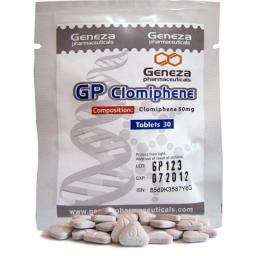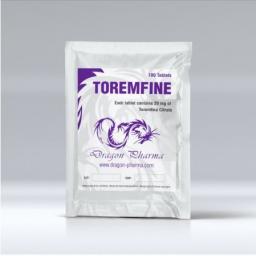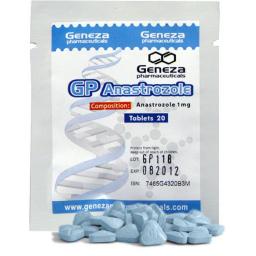From Australian Family Physician
Members of The Jean Hailes Foundation have produced a series of articles for the November 2004 issue of Australian Family Physician, the RACGP’s journal, that focus on health issues for women in their midlife.
Articles cover
- hormone replacement therapy (also known as hormone therapy)
- menopause including the psychosocial issues, as well as dysfunctional uterine bleeding.
Hormone therapy – weighing up the evidence
Hormone therapy (HT) use is well established for menopausal symptom relief, but its use is not currently considered justified for the prevention of disease.
Dr Teede reviews the recent literature on the risks and benefits of HT in postmenopausal women.
Menopausal symptoms are severe in around 20% of Australian women and HT effectively relieves these symptoms. Controversy still surrounds the risk profile of HT in women at the time of the menopausal transition, although risks are likely to be small. Recent literature has demonstrated that the role of HT in disease prevention is limited, based primarily on the lack of preventive benefits rather than on the small but present adverse effects of HT use. Historically, the HT literature holds many salient lessons for clinicians. These include the shortcomings of animal data, observational human data, and human trials focussing on intermediate end-points in guiding clinical practice. The HT story also reinforces the principle that health prevention strategies in low risk primary prevention settings should be lifestyle based. Pharmacological therapy, with its inherent risks, even if small, should be reserved for high risk settings.
Assessment of women in midlife
Midlife is much more than menopause. At the time of their life when women may be experiencing symptoms relating to decreased ovarian function, they are also confronted with a range of physical and psychosocial issues that may affect their wellbeing.
Dr Reddish outlines the range of clinical presentations of women in midlife and discusses assessment of these presentations in the context of the individual woman’s life.
Women in midlife present to doctors for a variety of reasons including information and preventive health, vasomotor or other symptoms of oestrogen deficiency, menstrual disorders, breast disorders, sexual difficulty, relationship and family issues, or mood disorders. Forming an effective doctor-patient partnership to address these issues requires time, empathy, good interpersonal skills, comprehensive and sensitive history taking and examination skills, and a good knowledge of relevant research.
Is this menopause? Women in midlife – psychosocial issues
Psychosocial influences have been found to impact on the symptoms a woman may experience as she moves through the menopause transition. Consequently any assessment of the menopausal woman should include an exploration and understanding of how the many psychosocial factors influence the experience of menopause and midlife.
Dr Deeks describes the many psychosocial factors that influence the experience of menopause including midlife issues, role and purpose in life, interpersonal relationships, libido, personality, psychological history and present psychological functioning, body image and sociocultural issues. Case studies are included to illustrate the importance of including psychosocial factors in the assessment and treatment of the menopausal woman.
Any assessment of the menopause experience should include psychosocial influences and the context of women’s lives. In a consultation where both the physical and psychosocial issues are explored, we come closer to addressing the true needs of each patient.
If not hormones – then what?
The Women’s Health Initiative study has made women reconsider their use of hormone therapy and made medical practitioners review the risks and benefits to each patient. The significance of lifestyle, nonprescription, and prescription therapies for menopause management are of increasing relevance.
Dr Murkies reports on the evidence from randomised controlled clinical trials and population based cohorts on nonhormonal management of menopause symptoms and on the role of diet and exercise in osteoporosis prevention. Personal tips are included.
Menopausal consultations should include a discussion of diet and exercise, and education of available over-the-counter therapies. For those women in whom oestrogen is contraindicated, prescriptions of serotonin noradrenergic reuptake inhibitors or clonidine may be indicated.
Dysfunctional uterine bleeding
Dysfunctional uterine bleeding is the major cause of heavy menstrual bleeding and impacts on women’s health both medically and socially.
Dr Farrell reviews the management of dysfunctional uterine bleeding
Dysfunctional uterine bleeding is defined as heavy menstrual uterine bleeding not due to any recognisable cause and is therefore a diagnosis of exclusion. Other conditions such as uterine fibroids, endometrial polyps and systemic diseases should be excluded by appropriate investigations. In the adolescent, investigations for a coagulopathy should be performed. The pathophysiology of DUB is largely unknown but occurs in both ovulatory and anovulatory menstrual cycles. Medical treatments include nonsteroidal anti-inflammatory drugs or antiprostaglandins, tranexamic acid, the progestogen releasing intrauterine device, combined oral contraceptive pills, and other hormonal therapies. As no medical treatment is superior to another, each woman should be individually assessed as to appropriate management. Surgical treatments include endometrial ablation and hysterectomy.
Menopause forum – a case discussion on midlife issues
The authors discuss their approach to the assessment and management of a woman presenting with issues relating to menopause and midlife.
Helen is 45 years of age. She has a partner, two teenage children, is a nonsmoker and is not taking any medication. She presents with hot flushes and premenstrual tension, and has regular menstrual cycles.
Menopause – a treatment algorithm
Dr Reddish has developed an algorithm that can assist GPs in the assessment and treatment of women experiencing menopause.
Top Testosterone Products Sales
Androne 250
|
Tamoximed 10
|
Gonadon 250
|


